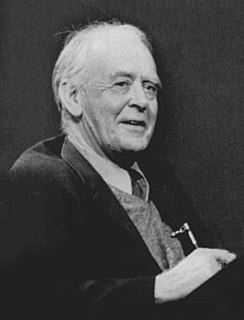A Quote by Sir John Richard Hicks
There is much of economic theory which is pursued for no better reason than its intellectual attraction; it is a good game. We have no reason to be ashamed of that, since the same would hold for many branches of mathematics.
Related Quotes
The broader the chess player you are, the easier it is to be competitive, and the same seems to be true of mathematics - if you can find links between different branches of mathematics, it can help you resolve problems. In both mathematics and chess, you study existing theory and use that to go forward.
Men follow their sentiments and their self-interest, but it pleases them to imagine that they follow reason. And so they look for, and always find, some theory which, a posteriori, makes their actions appear to be logical. If that theory could be demolished scientifically, the only result would be that another theory would be substituted for the first one, and for the same purpose.
The theory of free speech, that truth is so much larger and stranger and more many-sided than we know of, that it is very much better at all costs to hear everyone's account of it, is a theory which has been justified on the whole by experiment, but which remains a very daring and even a very surprising theory. It is really one of the great discoveries of the modern time.
The indispensability argument says (roughly) that if you have ample reason to accept an empirical scientific theory that makes indispensable use of mathematics, and that theory entails that numbers exist, then you have ample reason to accept that numbers exist. The argument affirms the antecedent of this conditional, and concludes that you have ample reason to believe that numbers exist. What is striking about this argument is that it seems to show that the empirical reasons that suffice for accepting a scientific theory also suffice for accepting a metaphysical claim.
The truth is that Trout, like Vonnegut and Ray Bradbury and many others, writes parables. These are set in frames which have become called, for no good reason, science fiction. A better generic term would be 'future fairy tales'. And even this is objectionable, since many science fiction stories take place in the present or the past, far and near.
If you have more than one reason to do something (choose a doctor or veterinarian, hire a gardener or an employee, marry a person, go on a trip), just don’t do it. It does not mean that one reason is better than two, just that by invoking more than one reason you are trying to convince yourself to do something. Obvious decisions (robust to error) require no more than a single reason.
We have no acceptable theory of evolution at the present time. There is none; and I cannot accept the theory that I teach to my students each year. Let me explain. I teach the synthetic theory known as the neo-Darwinian one, for one reason only; not because it's good, we know that it is bad, but because there isn't any other. Whilst waiting to find something better you are taught something which is known to be inexact.





































